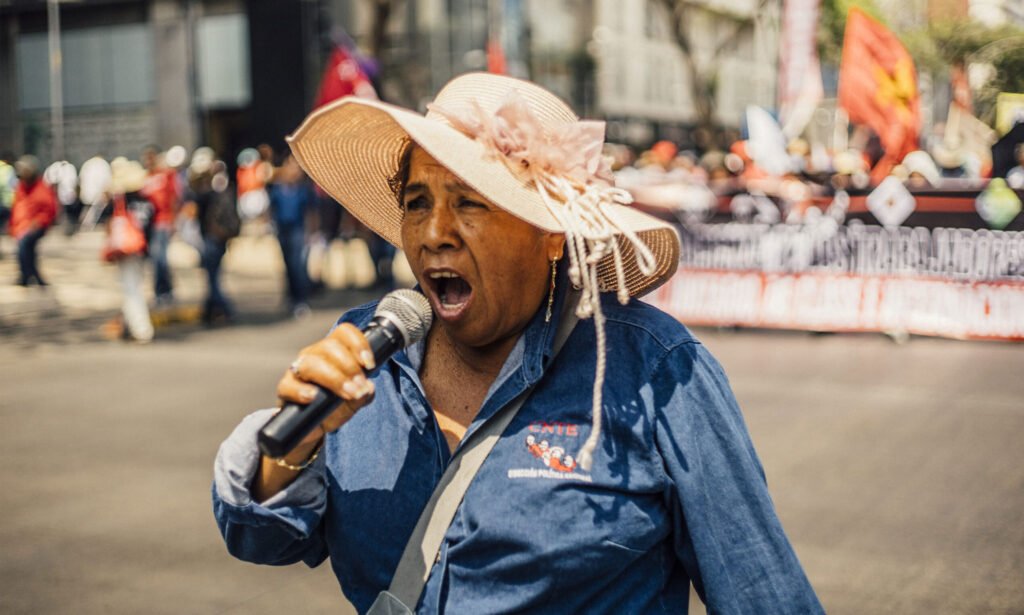Mexico City Students Will Be Able to Miss School Due to Menstrual Pain
This article by Gloria López originally appeared in the September 1, 2025 edition of El Sol de México.
Starting this new school year, primary and secondary school students in Mexico City will be able to justify school absences due to menstrual symptoms or pain, following the approval of a reform in the capital’s Congress.
The initiative, promoted by Morena representative María del Rosario Morales, which was approved in an extraordinary session on August 15, seeks to recognize menstrual health as a right and protect girls and adolescents from academic consequences or disciplinary sanctions for being absent due to their menstrual cycle.
“Beyond the fact-checking, I think it’s about the trust of young women and adolescents, because how do you justify your menstruation, just by saying you’re on your period? That’s why it’s important to raise awareness among teachers,” the legislator explained in an interview with El Sol de México.
She highlighted that the reform that adds section XIII Bis to article 111 of the Education Law of Mexico City also contemplates the right to reschedule evaluations or school activities that coincide with said absences.
“This return to school, girls could already request permission because once it’s approved, it appears in the Official Gazette the next day, so this school year must already be implemented,” she said.
The local representative said this is a step toward inclusive, gender-sensitive education for adolescent girls. She welcomed their right to this right, but asked for parents’ support in helping their daughters apply for permission so they can experience their menstruation in a dignified and informed manner.
She announced that she will conduct visits and tours of schools in Mexico City to raise awareness on the issue among teachers and students, as the measure also seeks to break the stigmas and taboos surrounding menstruation that still persist in school settings.

Anahí Rodríguez, spokesperson for Menstruación Digna (Decent Menstruation), celebrated the initiative’s approval, although she warned of the need to implement clear strategies to make up classes and exams in order to avoid educational gaps.
“Well, you’ve already missed classes, but how are we going to make up your classes or send you some homework so that they don’t miss their classes or exams, so that there’s no educational gap, because that’s always been the problem: the gap that women face due to menstruation,” she pointed out.
She also said that the initiative does not specify the number of days that adolescents can miss work, since when requesting a medical certificate, it is often difficult to detect diagnoses related to menstrual symptoms, as is the case with endometriosis, where it can take seven to 12 years to identify the disease.
She also emphasized the need to ensure adequate sanitary facilities and free access to menstrual products.
“It’s so simple to have a lock on the door, water, paper, soap, a trash can, you know, everything, lighting, and so on. So, I think that’s very essential because it’s important for girls to feel safe and comfortable in the spaces where they’re going to manage their menstruation ,” she said.
For its part, the Mexico City Council to Prevent and Eliminate Discrimination (COPRED) considered this a step forward in ensuring menstrual justice and “an informed, dignified, healthy experience, free of stigma and discrimination.”
In a statement, she called on educational institutions to implement this new provision without bureaucratic obstacles or practices that revictimize or punish female students. She stressed that the implementation of the initiative will be key to closing gender gaps and moving toward truly inclusive education .
According to the COPRED assessment, “Experiences of Menstrual Management in Adolescents and Youth in School Settings,” nearly 50.5 percent of students have experienced discrimination in their schools due to issues related to menstruation, while a quarter have stopped attending due to a lack of adequate conditions for their menstrual management.
Furthermore, only 34 percent of students reported having received menstrual education in the classroom, and many of them describe this training as incomplete and lacking in youth perspective.
-
CNTE Announces 72 Hour National Strike & March to Mexico City’s Zócalo
The class-conscious teachers union will also make “courtesy visits” to the embassies of countries who committed atrocities against Iran, to show their rejection of US imperialism.
-
Yet Another Mexican Citizen Dies in ICE Custody
The unidentified victim is the 9th Mexican citizen to have been killed in ICE detention since the beginning of 2025; this time in Adelanto, California.
-
Let’s Talk About Migration: Trumpist Persection
Millions of women who have endured unspeakable violence on their migration journey are now being persecuted in the United States by an extremely xenophobic and misogynistic government, led by Donald Trump,




